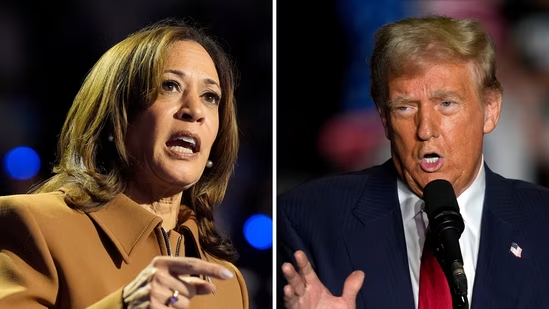Hasina informed the Indian high commissioner in Bangladesh, a few days prior to her resignation, that “anarchists tried to produce Sri Lanka-type mayhem in her country.”

Sheikh Hasina, the former prime leader of Bangladesh, was received by National Security Advisor Ajit Doval and high-ranking military officials at Ghaziabad’s Hindon Airbase upon her arrival following her departure from the nation riven by turmoil.
Hasina is being taken to a safe place, where she is being guarded by the Indian Air Force and other security agencies, according to a report from ANI. The 76-year-old former prime minister announced her resignation earlier in the day following demonstrators’ break-in and demands that she resign.
The founder of Bangladesh, Sheikh Mujibur Rahman’s daughter Hasina, took over as leader of the Bangla-speaking country in 2009 and was re-elected in January for a fourth term.
In a meeting with Prime Minister Narendra Modi, External Affairs Minister S Jaishankar reportedly briefed him on the developments in Bangladesh.
Verma,Days before her resignation, Hasina had told the Indian high commissioner in Bangladesh, Pranay Verma, that “anarchists” tried to create Sri Lanka-type mayhem in her country during the recent quota reform movement, and they tried to topple her government.
The violent protests in Bangladesh had been referred to by India as a “internal” issue within the nation.
Since mid-July, clashes between protesters and security forces have killed nearly 300 people, as per local media. The students’ peaceful protests against a quota system for government jobs unexpectedly escalated into a massive uprising against Hasina and her ruling Awami League party.
Bangladesh army chief General Waker-uz-Zaman, while announcing that an interim government would take over soon, assured that the military would launch an investigation into the deadly crackdown on student-led protests that fueled outrage against the government. Bangladesh’s army chief, General Waker-uz-Zaman, announced that an interim government would take over soon. He also assured that the military would launch an investigation into the deadly crackdown on student-led protests, which fueled outrage against the government.
Hasina had ruled since winning a decades-long power struggle with Bangladesh Nationalist Party leader Begum Khaleda Zia in 2009.
The two women inherited political movements from deceased rulers – in Hasina’s case, from her father Sheikh Mujibur Rahman; in Zia’s case, from her husband Ziaur Rahman, who gained power following Mujib’s death and was assassinated in 1981.




